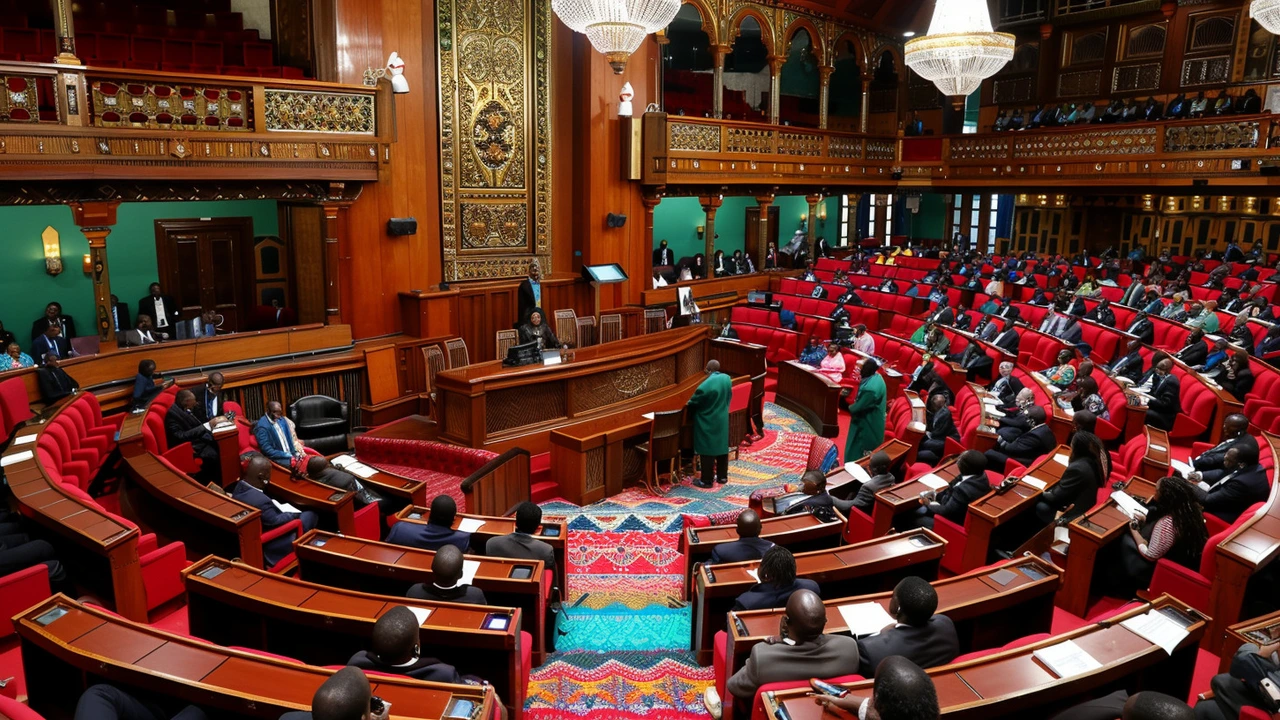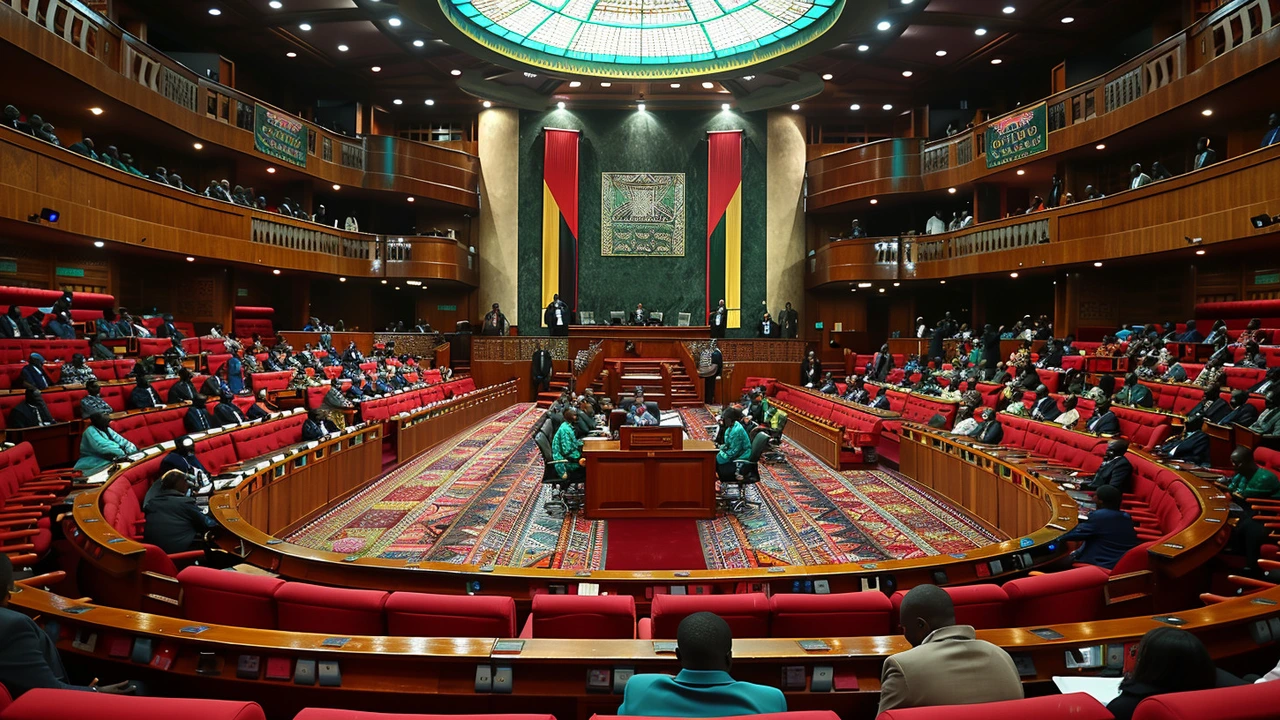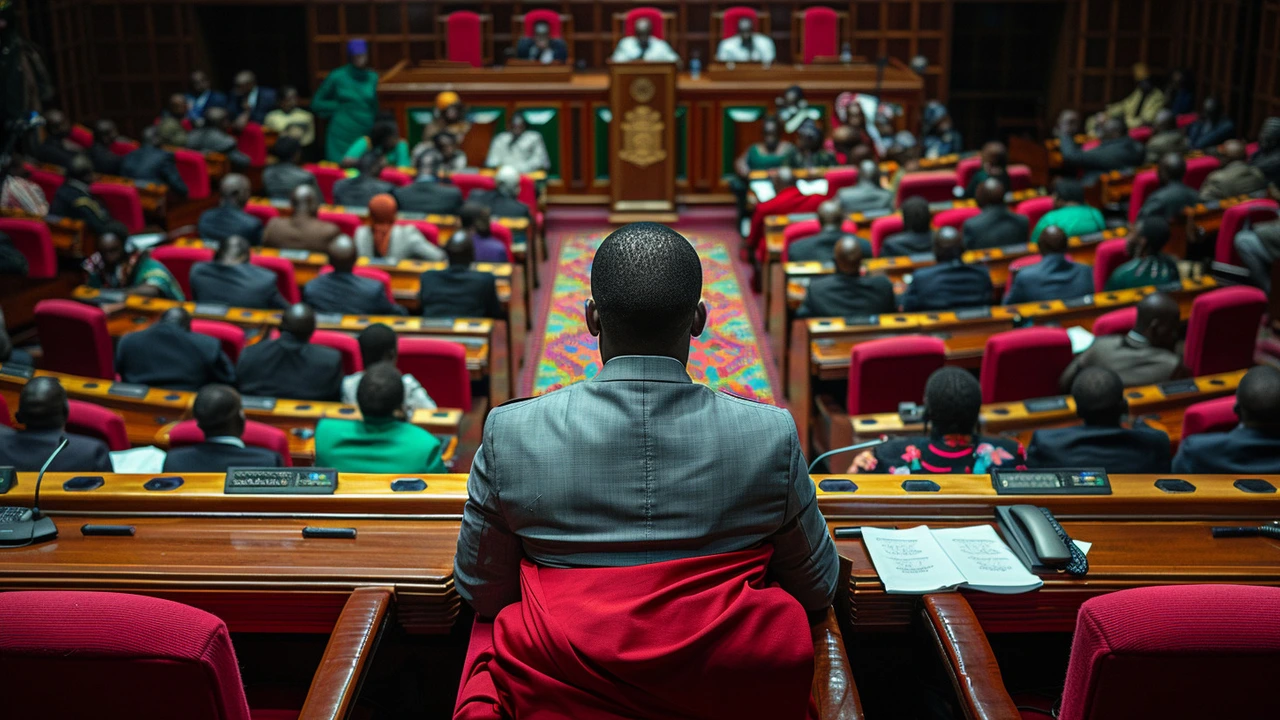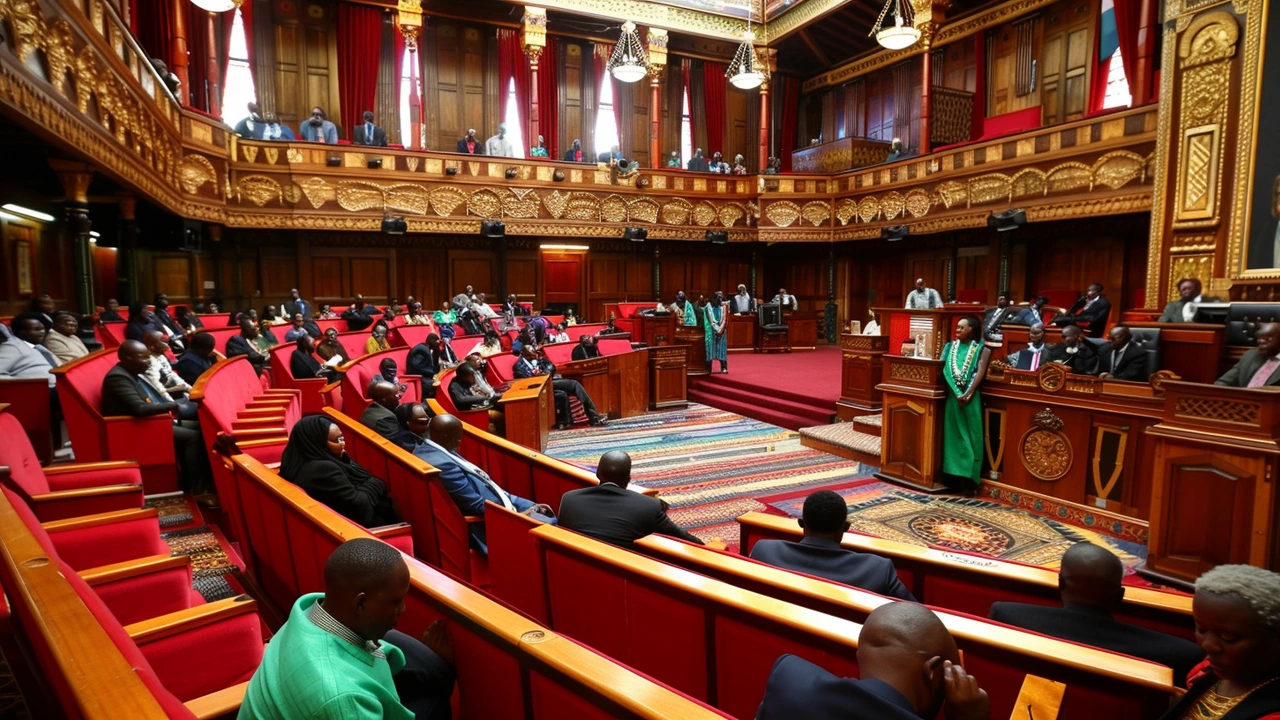Kenyan Parliament Convenes Amid High Tensions
The Kenyan Parliament convened on Wednesday, June 26, 2024, under extraordinary measures to discuss two highly controversial and urgent matters: the approval of the deployment of the Kenya Defense Forces (KDF) to the Eastern African Standby Force and the ongoing protests against the Finance Bill. The session was called into action by Speaker of the National Assembly, Moses Wetangula, after receiving a request from the Ministry of Defense.
The Ministry of Defense has emphasized that the deployment of the KDF is crucial for enhancing regional security. Citing growing instability in neighboring regions, there was a pressing need for Kenya to contribute to the Eastern African Standby Force, a collective security arrangement aimed at ensuring peace and stability in the region. This deployment signifies Kenya's intent to solidify its role as a regional powerhouse in maintaining Eastern Africa's security. The urgency of the meeting was palpable, with the approval process expedited to meet imminent deadlines for troop deployment.
Protests Against Finance Bill Intensify
While the Parliament was convening, the atmosphere outside the building was charged with tension. Protesters, including activists and various civil society groups, had been gathering in large numbers for several days. Their grievance centers on the proposed Finance Bill, which they argue will lead to heightened taxation and exacerbate economic hardships for the average Kenyan. The presence of the protesters underscored the deep division within the country regarding the Bill's potential impact.
The Finance Bill proposes several tax hikes and new levies aimed at increasing government revenue. However, its critics argue that it disproportionately affects lower and middle-income earners, further widening the economic disparity in the country. The demonstrators have been vocal in their demands for the Bill’s withdrawal, citing an unsustainable economic burden on the populace. The ongoing protests have also seen heavy clashes with police forces, leading to several injuries and arrests. The loud chants and waving placards of the protestors were a stark reminder to everyone inside the building of the civil unrest brewing outside.

Deployment of KDF: A Strategic Move
Inside the Parliament, discussions focused on the strategic importance of deploying the KDF. Proponents of the move argue that Kenya's participation in the Eastern African Standby Force is essential for several reasons. First, it offers an opportunity for Kenya to lead by example in regional security matters. By contributing troops, Kenya reasserts its commitment to peace and stability in Eastern Africa, fostering stronger alliances with its neighbors. The deployment also aims to address the transnational threats posed by terrorism, human trafficking, and piracy, which have plagued the region.
Critics of the KDF deployment, however, worry about the financial and human costs of such an initiative. They raise concerns about the sustainability of long-term military commitments abroad, particularly when coupled with domestic issues such as the economic struggles highlighted by the Finance Bill. Despite these concerns, the Ministry of Defense maintained that the benefits of the deployment far outweigh the risks, calling for swift approval to meet the operational timeline.
The Road Ahead for Kenya
As the Parliament edges closer to approving the KDF deployment, it remains to be seen how the government will address the growing discontent over the Finance Bill. The current situation serves as a litmus test for the administration’s ability to balance pressing international obligations with the domestic needs of its citizens. Lawmakers face the challenging task of finding a middle ground that would allow for fiscal policies that bolster economic growth without inflicting undue burdens on the most vulnerable segments of society.
The outcome of the KDF deployment decision and the reaction to the Finance Bill will have significant implications for Kenya’s political landscape. The country stands at a crossroads, with paths that could lead either to enhanced regional influence and stability or to increased domestic unrest and economic challenges. As the debates and protests continue, all eyes remain fixed on the resolution of these critical issues.

Public Sentiment and Government Response
Public sentiment toward both issues remains deeply divided. On one hand, there is a strong sense of pride in Kenya’s ability to contribute to regional security. Many citizens support the idea of the KDF playing a pivotal role in stabilizing the region, seeing it as an assertion of national strength and responsibility. On the other hand, the Finance Bill has struck a nerve with a large portion of the population, many of whom feel it represents a step backward in economic policy.
The government’s response to these protests will be crucial in determining its future legitimacy and effectiveness. Offering concessions or modifications to the Finance Bill may appease some protesters, but could also be seen as a sign of weakness. Conversely, a hardline stance might quell the unrest temporarily but could lead to long-term dissatisfaction and further protests. Thus, the government must navigate these treacherous waters with caution and foresight.
Experts' Opinions and Analysis
Policy experts and political analysts have weighed in on the situation, offering various perspectives on the best course of action. Many argue that there is an urgent need for a thorough review of the Finance Bill to ensure it does not disproportionately impact the lower and middle-income earners. Transparency in how the additional revenue will be utilized is also essential to gain public trust. Analysts also stress the importance of public consultation in significant policy decisions, a step that many feel was overlooked in the swift progression of the Finance Bill.
Regarding the KDF deployment, experts underline the importance of strategic alliances and regional collaboration. They see Kenya’s proactive stance as a potentially stabilizing force in Eastern Africa, but caution against over-extension of military commitments, especially in the face of domestic challenges. Balancing international responsibilities with the needs of the home front is highlighted as essential for sustainable policy-making.

Conclusion
The events unfolding in the Kenyan Parliament and in the streets outside are a testament to the dynamic and often volatile nature of governance and public policy. The decision to deploy the KDF to the Eastern African Standby Force and the controversy surrounding the Finance Bill reflect broader themes of security, economic stability, and citizenry's role in shaping policy. As Kenya navigates through these challenges, the actions taken in the coming days will undoubtedly shape the country's trajectory for years to come. Ensuring a balanced approach that addresses both international commitments and domestic welfare will be key in maintaining national unity and progress.







Write a comment